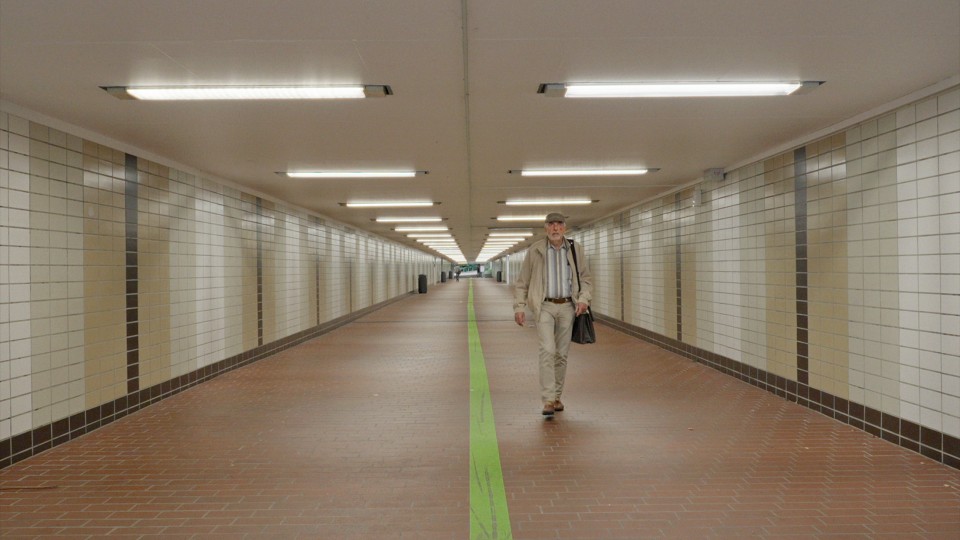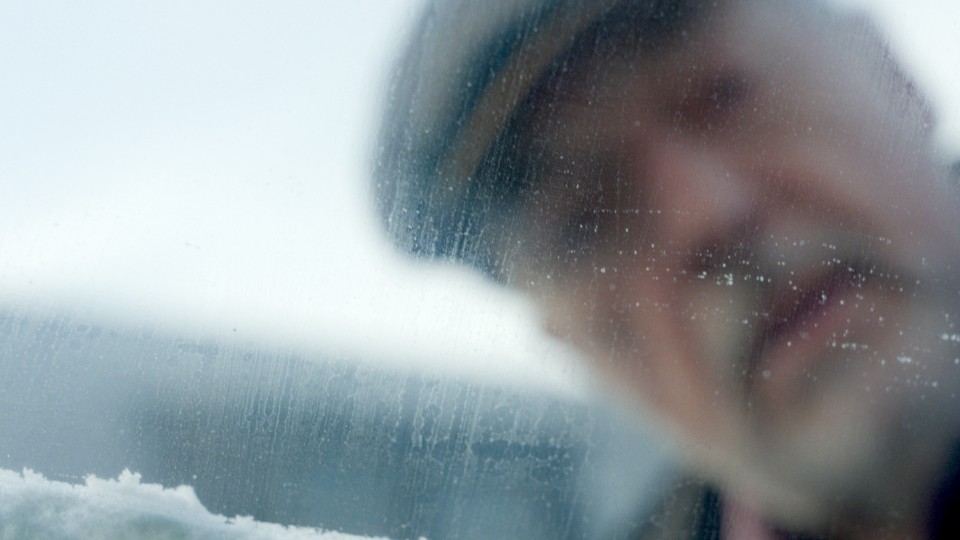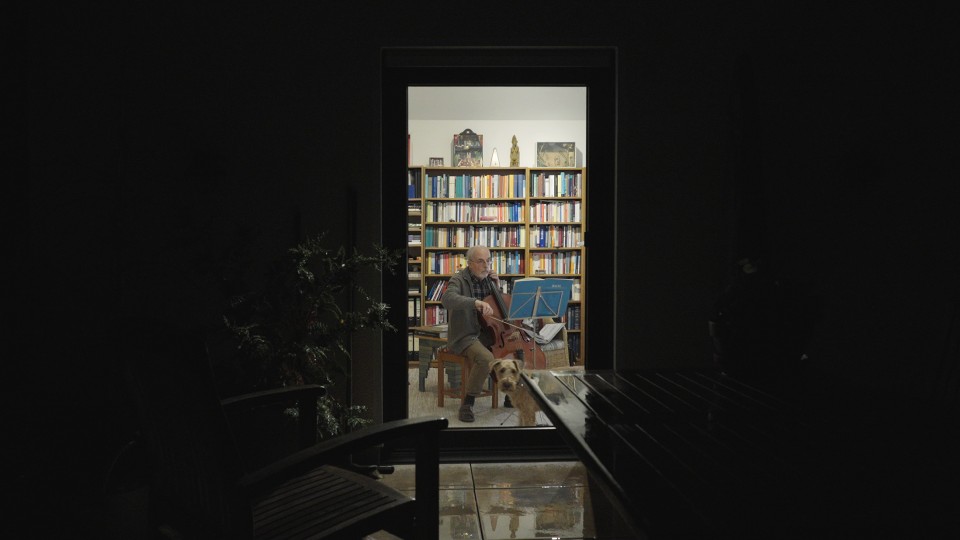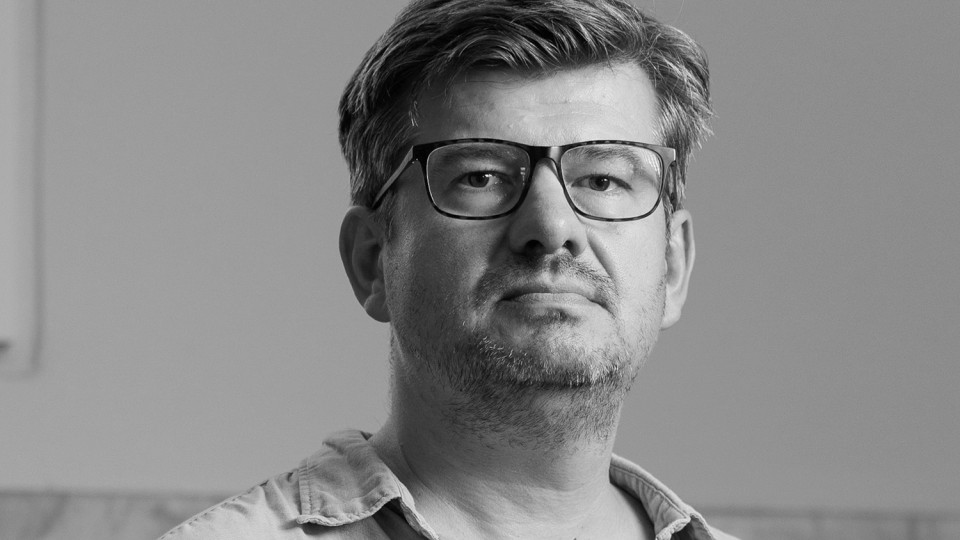Dr. Spittler has made his profession his life's work. Unflinching and unfailing, the neuropsychiatrist visits, questions and
advises people who want him to issue a crucial document, certifying in his expert opinion that they can end their lives voluntarily
and with medical supervision. In GREEN LIGHT, Pavel Cuzuioc doesn‘t take a position on assisted suicide; he‘s interested in the personality of this convinced loner and
his everyday life, which is dominated by ultimate questions and the enormous burden of responsibility.
GREEN LIGHT touches on assisted suicide, a very controversial subject at the moment, but your film is first and foremost the
portrait of a doctor. How did you become aware of Dr. Spittler?
PAVEL CUZUIOC: The subject is particularly controversial in Austria right now because there was a concrete trigger. But essentially, it’s
as old as humanity itself. It’s no accident that Camus' s The Myth of Sisyphus begins with the words: "There is but one truly
serious philosophical problem, and that is suicide."
I often listen to podcasts, about a wide range of topics. In this case, I was immediately fascinated – not so much by the
topic itself as by Dr. Spittler the individual. I started to wonder: What kind of person would you have to be, to put yourself
in a position where you must make decisions like that? How strong, how eloquent, how convinced and how professional must someone
be, to have the inner strength to say yes or no?
What brought you together?
PAVEL CUZUIOC: I wrote and asked him what he thought of the idea of a film about his work. His only reservation was really about my physical
presence, with a camera, during such an intimate conversation. Our first meeting didn’t go entirely as planned: I was late,
and by the time I got there, he had to leave for an appointment with a patient. On the spur of the moment, he suggested I
could go with him. It took us about an hour and a half to drive there – and during that time, we talked a lot, really getting
to know one another. While he was examining the patient, I just waited and let the impressions sink in. On the way back, he
described the case to me in detail. So the initial structure of the film emerged almost by chance.
How was the subject perceived, by society and the media, when you started work?
PAVEL CUZUIOC: When I began the project, the law allowing assisted suicide under certain conditions wasn’t yet in force in Austria. In Germany,
assisted suicide has been allowed in principle since the ruling of the Federal Constitutional Court in 2020, while in Austria
it has been regulated by law since 2022, but in a far more restricted context. It was never my goal to make a political statement
about the issue of assisted suicide.
From the very beginning, you show Dr. Spittler playing the cello, walking his dog ... Why were these aspects of his private
life important to you?
PAVEL CUZUIOC: Someone who deals with this issue so intensely can’t be completely detached from it in his private life. I had the impression
from my encounter with Dr. Spittler that the subject of assisted suicide – especially in connection with mental illness –
dominates his everyday life to a considerable extent. So I also had to learn something about him as a private person, and
show that, to really understand it. His dedication is part of his personality. He is a pioneer in a way – for some people,
almost a kind of martyr. The subject of assisted suicide is his life's work.
What exactly does he do, in practical terms?
PAVEL CUZUIOC: His work consists mainly of what you see in the film: he draws up psychiatric reports to determine a patient’s decision-making
competence and capacity to be held responsible for his actions – precisely those elements that the law requires in applications
for assisted suicide. In many cases, people contact him directly, either because they have read about him or because he’s
been recommended to them – often by organizations offering suicide assistance.
The unusual thing about his work is that he functions in the capacity of a physician as well as a psychiatric expert, so he
can actually assist people to commit suicide in certain cases. There’s that interaction between medical and psychiatric expertise.
How did the two of you decide to make this account of his work?
PAVEL CUZUIOC: Shooting the footage took almost two years. I asked Dr. Spittler to mention the film project when he responded to enquiries.
Quite a lot of people agreed to be involved, though some didn’t; it was about 50:50.
About halfway through the filming process, it became clear to me that I had to move in the direction Dr. Spittler was taking
to an increasing extent; he was devoting more and more time to people with mental issues. And that’s precisely the area where
the question of how decision-making capacity can be established is particularly sensitive. Gradually, the project developed
along those lines.
I decided to shoot everything on my own – just me, Dr. Spittler, the patients and, if necessary, their relatives on the "set".
Making the film would have been impossible if we’d had another pair of eyes, a sound boom and artificial lighting. There are
moments when you have to make yourself invisible – don't disturb anyone, don't intervene, and at the same time keep everything
under control technically, as far as possible. That way of working became a kind of principle for me – it permits greater
closeness and authenticity.
Dr. Spittler stresses that being close to the people who are in this intimate situation is a positive, satisfying aspect of
his work. As a filmmaker, did you also experience being particularly close to the protagonists?
PAVEL CUZUIOC: I didn’t really get that kind of satisfaction from encounters with those people. I tried to remain detached while I was filming
rather than responding emotionally. Keeping that distance helped me to make the film –though there were difficult, emotional
moments, especially when I could see reflections of my own experiences, or those of my family, in people's stories.
I decided beforehand that in this film about Dr. Spittler, I wouldn’t myself experience what the people accompanying the patients
go through. From the very start, I didn't want to film that moment. Some people who had been given the green light suggested
that I could be there, but I didn’t want to. I felt it was important to draw a clear line at the point where it could have
become voyeurism. I've never been interested in showing the moment when a person ceases to exist – that would be too sensationalist.
The challenge for me was to be honest without being shocking. Death is a powerful topic. I wanted the film’s strength to lie
in its simplicity rather than any spectacular elements.
It's interesting that what Dr. Spittler does corresponds closely to the essence of his profession while at the same time being
in conflict with it.
PAVEL CUZUIOC: There is a dissonance – but it is a dissonance that is deeply rooted in our culture. Every doctor vows to adhere to the Hippocratic
Oath and do everything possible to preserve human life. Dr. Spittler is somewhat at odds with this classical approach. And
that's exactly what I find interesting – because medicine doesn't stop simply because a patient’s survival is assured.
In two years of working with Dr. Spittler, I witnessed a lot of talk about assisted suicide – mostly from people who perceive
the issue from an ethical or religious point of view, or through the filter of their professional responsibility and moral
affiliation. But when you’re in the same room as the people who are directly affected, when you feel their reality, everything
suddenly becomes very clear. I now feel that the crucial point is this: we don’t decide whether we are born – but we should
at least be allowed to decide how we leave this world.
During the course of your work, did you also feel ambivalent about your protagonist, however much you might have agreed with
him in principle?
PAVEL CUZUIOC: There is a certain ambivalence – and that’s the way it should be. Ambivalence can be a good thing, because it doesn't blind
us. You stay awake, open to the idea that things could develop differently – and perhaps should develop differently. That
was important for the film.
I can't say I'm on his side, but I can't say I'm against him, either. I tried to remain as objective as possible and just
to show what I experienced, without imposing my opinion. That's the challenge for me. Ultimately, it's about allowing closeness
without passing judgement.
The most surprising sentence we hear from Dr. Spittler is: "I am not in favor of dying." He goes on to talk about a person’s
ancestral line on a spiritual level, which calls into question the whole idea of suicide assistence.
PAVEL CUZUIOC: Yes, there are two levels here. He points out that we are constructed biologically in such a way that we strive for life –
that every human being has a survival instinct. And he is also against dying because he himself wants to live. In this scene,
you feel something that shouldn't necessarily be explained – and that's exactly what he conveys. There are always cases where
he doesn’t give the green light. He knows from experience that many people keep a positive report in a drawer, and in some
cases it almost takes on a preventative function. Dr. Spittler is someone who always encourages people to keep going, to try
new therapies first. You can understand how a person like him thinks – someone who is confronted with suffering every day.
That might have been one of the most honest moments in the film for me.
Dr. Spittler seems to have ensured that his activities were very well protected, so how did he find himself in a legal gray
area which finally culminated in a lawsuit?
PAVEL CUZUIOC: He got himself into that legal gray area because he was certain he understood the situation clearly as a psychiatrist – and
in the hope that one day the legislation would provide more clarity. The public prosecutor's office accused Dr. Spittler of
examining and then accompanying someone in assisted suicide when that person was incapable of making a decision at the time
of the assessment, due to a diagnosis of schizophrenia. After the death of this person, a second expert report was drawn up
which came to a different conclusion than his. So there were two assessments with conflicting conclusions – the ante mortem
one prepared by Dr. Spittler and the post mortem one prepared by another doctor. The court essentially accepted the second
expert opinion. Dr. Spittler was convicted, and then his appeal was rejected by the Federal Court of Justice, making the judgment
final. It remains a complex and sensitive case that leaves many questions unanswered. He is currently in custody.
Interview: Karin Schiefer
October 2025
Translation: Charles Osborne






